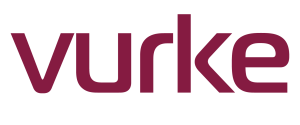Enhancing Performance: The Impact of Remote Work on Workplace Dynamics
In today’s ever-evolving professional landscape, businesses around the world are exploring how a remote working culture can drive better productivity and improve employee satisfaction. The shift to remote working is not merely a response to a global pandemic but a movement that reflects the modern workforce’s needs and aspirations. Organizations are turning to outsourcing services, remote work services, and robust remote workforce models to support this transition, ultimately finding that a well-structured remote working culture does more than just improve efficiency—it encourages a balanced lifestyle for employees. Companies like Vurke are playing a significant role in helping businesses adapt by providing reliable remote team solutions and remote workforce management.
The Rise of Remote Working Culture: A Brief Overview
The concept of working outside traditional office spaces isn’t new, but recent years have accelerated its adoption. What began as a necessity during lockdowns has now become a preferred way of working for many employees and businesses alike. Technology has paved the way for this shift, making it possible for companies to manage employees from any location, collaborate seamlessly, and maintain high levels of productivity.
Outsourcing services and remote work services have emerged as vital components in supporting this trend. They provide a structured framework and the technical backbone for managing a geographically diverse workforce. The effectiveness of these services has not only eased the shift to remote working but also demonstrated how it can enhance productivity across industries.
Increased Productivity: The Impact of Remote Working Culture
One of the most compelling arguments for remote working is its impact on productivity. Numerous studies have shown that employees working from home or in flexible environments are often more productive than those in traditional office settings. This productivity boost can be attributed to several key factors:
How Remote Working Culture Fosters Work-Life Balance
Beyond productivity, a remote working culture is celebrated for promoting a healthy work-life balance. Here’s how it helps create a more balanced lifestyle:
Using Remote Work Services to Enhance the Remote Work Experience
For businesses exploring remote work models, remote work services play a pivotal role in creating a seamless and efficient experience. These services offer tools, platforms, and processes that streamline communication, task management, and performance tracking. Companies like Vurke specialize in providing these solutions, helping businesses to manage their remote teams effectively and ensuring smooth operations regardless of physical distance.
Remote team solutions enable companies to focus on their core competencies while ensuring that remote employees have the support they need to be productive. With access to the right digital tools and support systems, remote workers can collaborate effortlessly with their team members, even when spread across different time zones.
The Role of Outsourcing Services in Remote Workforce Management
Outsourcing services are increasingly vital for companies looking to adopt a remote working culture. By delegating specific tasks or entire departments to third-party experts, companies can maintain operational efficiency without overstretching their internal resources. Outsourcing is particularly useful for administrative, IT, or customer service roles that do not require constant in-office presence.
Moreover, outsourcing allows businesses to access global talent pools, attracting skilled professionals from various parts of the world. This approach not only enriches the diversity of the workforce but also provides opportunities for highly specialized tasks to be managed by experts, enhancing overall productivity and efficiency.
How Vurke Supports Remote Workforce Needs
Vurke provide businesses with a comprehensive suite of remote workforce solutions that cater to the unique challenges of managing a remote team. From compliance services to digital tools that facilitate seamless communication, Vurke’s offerings help organizations manage their remote teams with ease and reliability.
By choosing a provider with expertise in remote work solutions, businesses can ensure that they remain compliant with labor laws, maintain data security, and keep their employees engaged, motivated, and productive. Vurke’s services are designed to minimize the challenges of remote workforce management, allowing companies to focus on their strategic goals while their remote operations run smoothly in the background.
Adapting Company Culture for Remote Success
A successful remote working culture goes beyond simply providing the right tools—it involves adapting the company’s culture to support and nurture a virtual team environment. Leaders play an essential role in this process by promoting transparent communication, setting clear expectations, and encouraging collaboration across departments. Here are some best practices for creating a strong remote culture:
Common Challenges in Remote Work and How to Overcome Them
While remote work has its advantages, it also comes with unique challenges, such as isolation, difficulty separating work from personal life, and communication gaps. To address these, businesses should:
By taking these proactive steps, companies can mitigate common challenges and ensure that remote work remains a productive and enjoyable experience for everyone involved.
Conclusion
Embracing a remote working culture is no longer just a trend; it’s a powerful strategy for improving productivity and promoting a balanced, fulfilling lifestyle for employees. Companies that invest in effective remote work services, like those offered by Vurke, can create a seamless experience for their employees and unlock higher productivity levels. By combining flexible schedules, reduced commute times, and customized work environments, remote working culture fosters a work-life balance that traditional office settings often fail to provide. As more businesses adapt to this model, remote work continues to reshape the future of work, proving that productivity and employee well-being go hand in hand.



